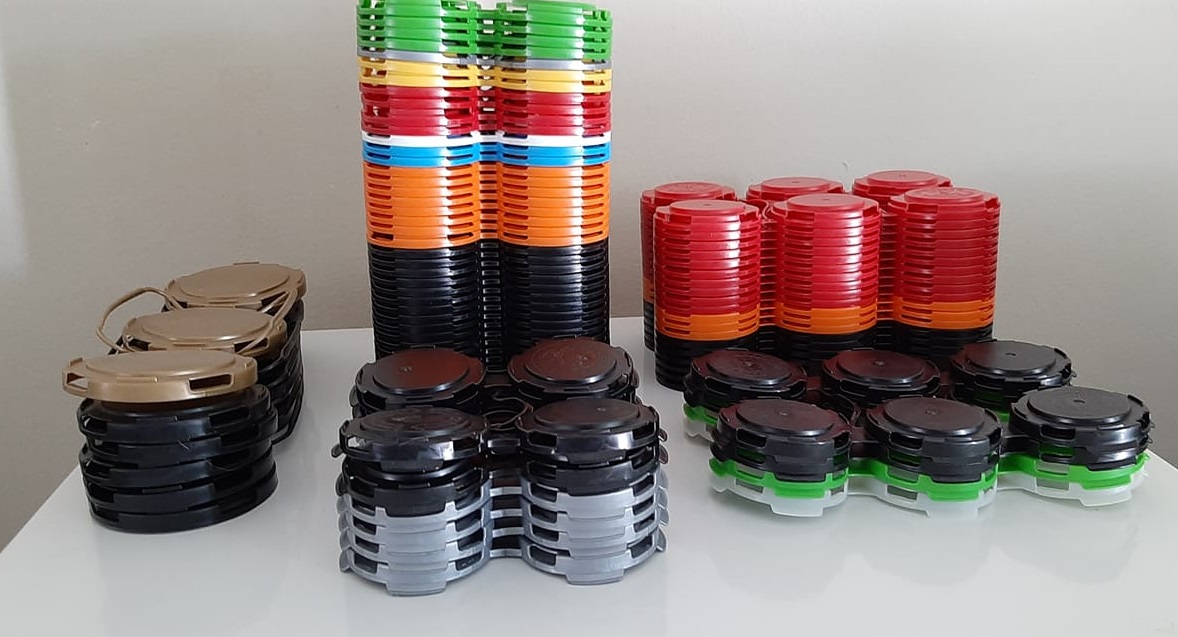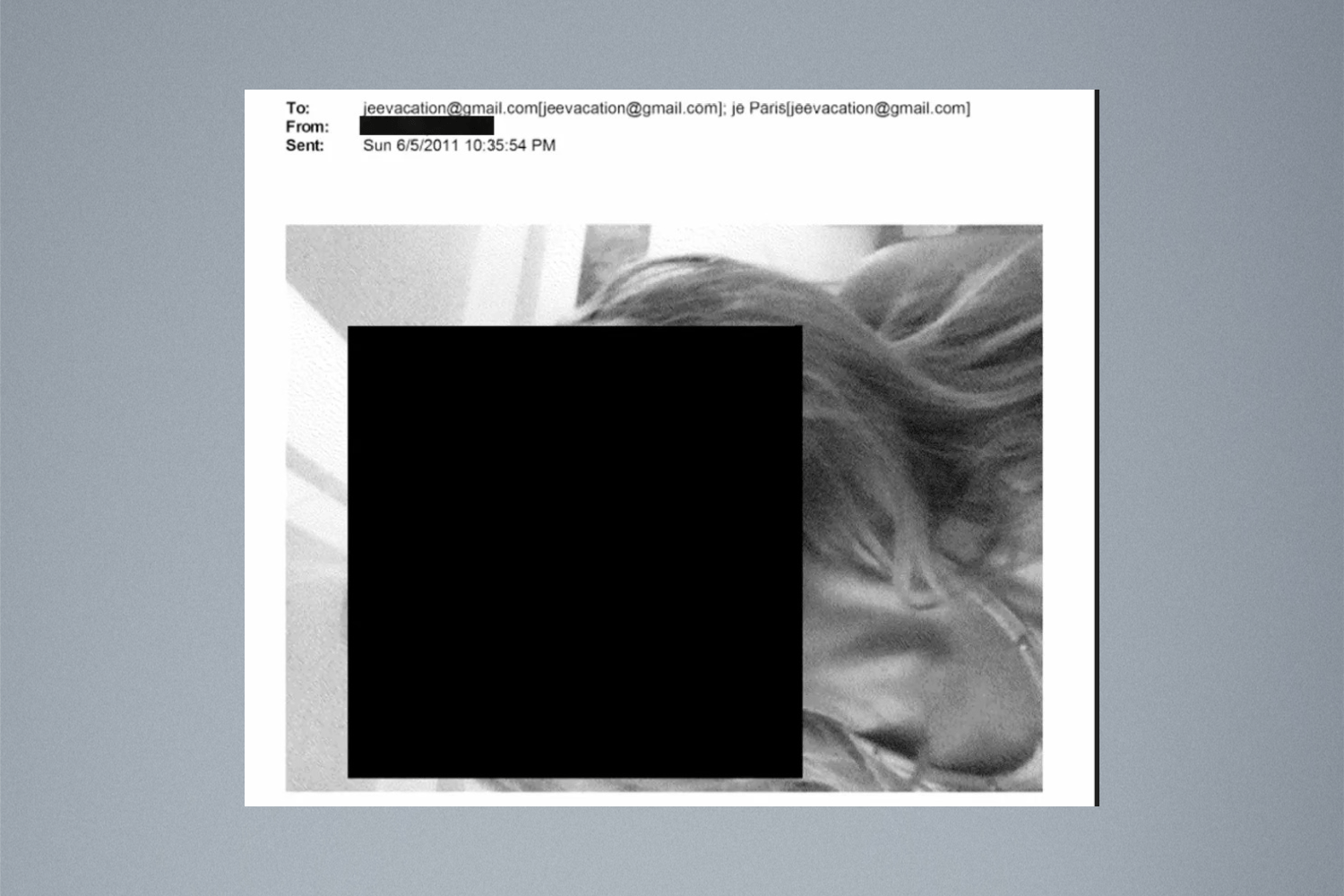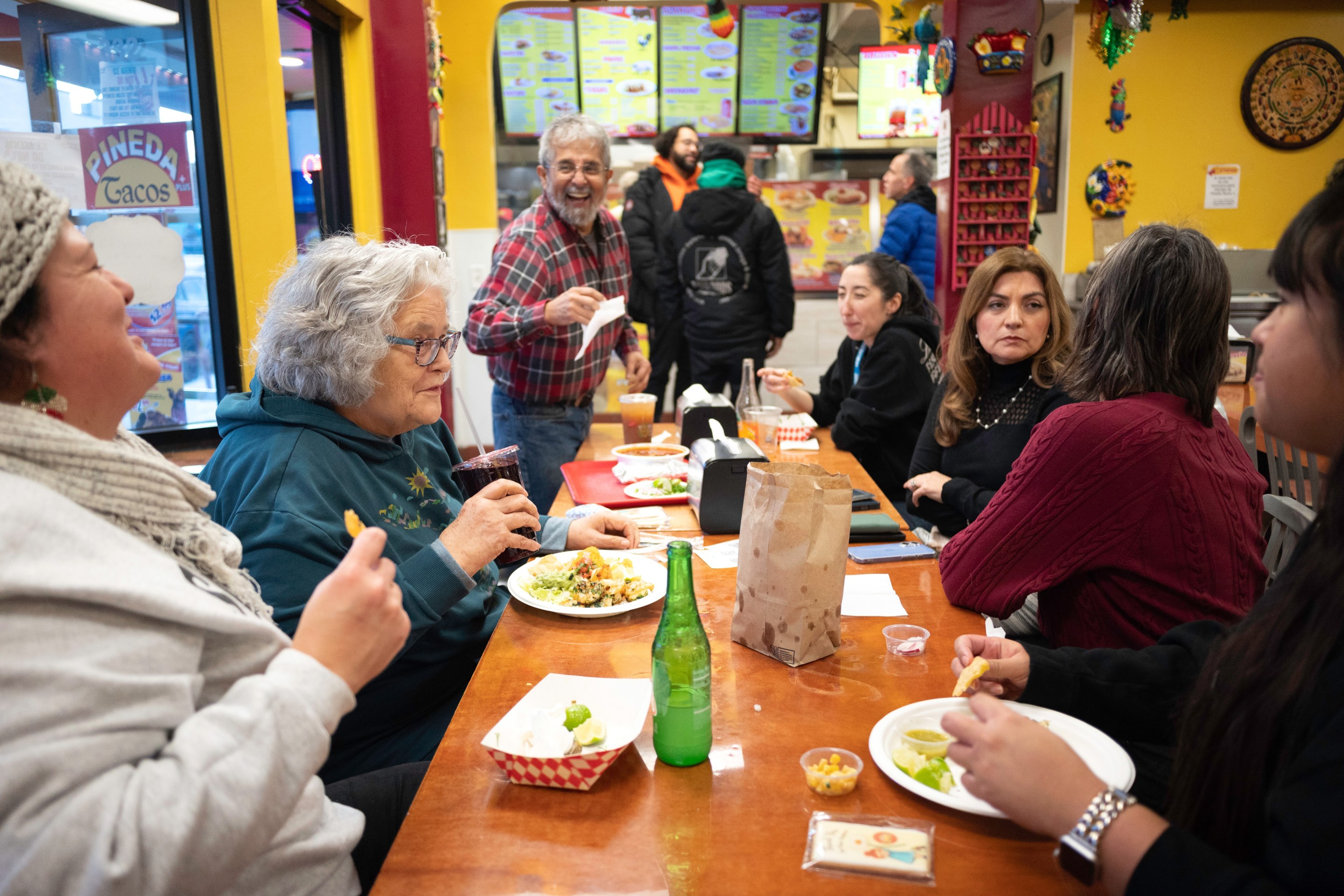Over the past decade, PakTech has achieved genericized trademark ubiquity in the craft beer world—its product is to beer can holders the way Jell-O is to gelatin dessert, Kleenex is to tissue, etc. The Oregon-based company's marketplace dominance hasn't led to customer clarity around what the hell to do with its plastic beer grabbers, however.
“The majority of drinkers, they’re probably not aware at all," says Joe Wells, head brewer at Fair State Brewing Co-op in northeast Minneapolis. "There’s confusion among drinkers. The majority of rings probably end up in the recycling bin or the trash.”
"It's not really clear what's going on," says Jerard Fagerberg, Racket's ace beer writer. "Every day in the local beer groups, someone is asking what to do with their stack of colorful plastic waste, and no one really knows."
"Yeah, people aren’t sure what to do with 'em," says Dennis Brummel, operations manager at St. Paul canning supplier Lagersmith.
The short answer: If you toss 'em in your city's single-sort recycling bin, they'll probably end up in the landfill. Recycling plant workers sort the contents of those bins by hand, Brummel says, and PakTechs don't jump out the way milk jugs and newspapers do. "About 90%, from what I’m told, of everything that gets recycled goes in the landfill anyway," he says. Globally, 91% of all plastic produced never gets recycled, according to a newish report from the Global Alliance for Incinerator Alternatives; under the penalty of waste tax, Minnesota state law requires 85% of all material accepted by sorting centers to be recycled. (For much more on the messiness of recycling, watch the essential Frontline doc Plastic Wars.)
"It’s difficult for a lot of facilities to recycle these handles," Keenan Hoar, a sales manager for PakTech, tells VinePair. “It’s been a pretty big frustration on our end.”
How'd so many confusing PakTechs end up attaching themselves to your Big Doinks IPA? The product presented small-scale brewers the ability to package four- and six-packs without the $50,000 applicator machine that links up High Lifes, Budweisers, and other macros via throwback plastic rings, Wells says. Those rings became notoriously synonymous with entangling turtles in the '80s; the major manufacturer, Hi-Cone, introduced recyclable photodegradable plastics in '88, but plastics never truly go away.
PakTech technology allows microbreweries to snap cans into place by hand, Wells says, noting that Fair State recently pivoted to a PakTech competitor, CanCollar, which'll result in 15,000 pounds of plastic savings per year. PakTech, whose product is made from 100% recycled materials, devotes plenty of website real estate to sustainability, claiming to have "repurposed over half a billion gallon-sized milk jugs into new packaging handles, keeping roughly 80 million pounds out of the waste stream" since 2012. (Friend of Racket Dave Infante explores the PakTech plastic paradox in this in-depth exploration.)
"It can be difficult to find places to get rid of these can grips, but a lot of us feel it's important to ensure they don't end up in a landfill," says Brian Burgeson, a beer drinker who's part of the Minnesota-based Facebook group Beer People. Burgeson recently took a haul of 77 PakTechs to St. Louis Park's Steel Toe Brewing, one of many local taprooms that will dispose of the grabbers regardless of company origin. (His hulking collection is commonplace among aficionados, Fagerberg says: "Craft beer drinkers are like crows, they tend to collect refuse from drinking, whether it be bottle caps or growlers.")
Fair State, Steel Toe, Modist, Indeed, Lake Monster, Tin Whiskers (RIP Tin Whiskers), and whole lotta other local beer makers collect PakTechs from customers, and some even offer discounted taproom beers if you hit a certain number. Every week, those companies tote garbage bags full of 'em to Lagersmith's warehouse. Brummel watches 'em pile high in pallet bins, and ends up transporting 500 pounds of PakTechs each month to a specialty plastics recycler who know how to reuse them. "The breweries that do the best put out a recycling bin in their taproom with a sign that says ‘Hey, dump your PakTechs right in here,'" Brummel says. Elevated Beer Wine & Spirits also accepts PakTechs, should you want to acquire more in the same trip. Ditto for France 44.
Tasking drinkers with hoarding plastic grabbers and scouting disposal locations isn't a perfect system, but it's the only one we've got. Putting the onus on individuals in lieu of functioning systems is as American as an ice-cold Yuenglings.
"At some point in the pandemic, I gave up and chucked my PakTechs in the blue bin," Fagerberg says. "Hope they actually got recycled this time."







